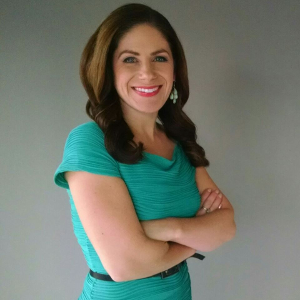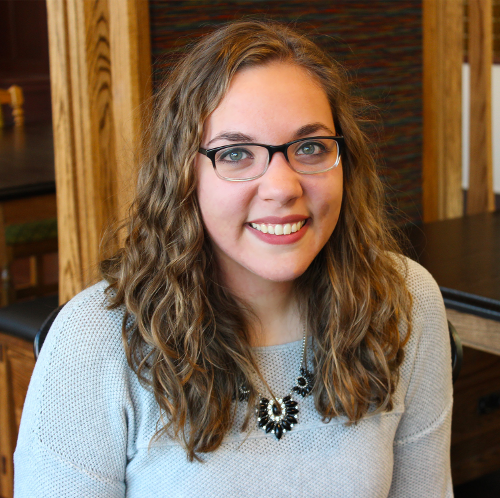Reaching for inclusion: Honors College student part of new Purdue diversity initiative
Student Spotlight: Abigael Johnson
January 5, 2017

By Lindsay Perrault,
Honors Communications
WEST LAFAYETTE, Ind — Honors College senior Abigael Johnson may be graduating soon, but research she’s involved in could have a lasting impact on Purdue’s campus. Johnson has been working in Psychology Professor Margo Monteith’s lab, exploring the perspectives of both underrepresented and majority students to improve minority recruitment, retention and success. Monteith’s team, the Monteith Intergroup Relations and Inclusion Laboratory, is one of nine recipients of the new Diversity Transformation Award from the Office of the Provost. The $1 million initiative is the first of its kind at Purdue, designed to tap the talents and creativity of university faculty to address diversity issues.

Each team was charged with studying the factors that impact inclusiveness and success. Monteith’s lab created an intervention program to inform incoming freshman about things like implicit bias.
“Everyone has automatic biases we don’t notice until something happens or someone points it out, and then we tend to feel bad,” Johnson explained.
During the spring and summer, the psychological sciences major helped the team craft an evidence-based presentation for Boiler Gold Rush. They partnered with the theater department to make it multi-media. Together, they filmed demonstrations supported by social psychological literature.
When new Boilermakers arrived in August, Johnson and her fellow team members presented to nearly 300 freshman in different groups. About half received the intervention presentation and a survey. The others were simply told the percentages of ethnicities at Purdue and given the survey.
“We measured things like belonging, sense of belonging at Purdue, the degree to which you feel Purdue is part of your identity and then, depending on what ethnic or minority group they were part of, how well do you feel you are being represented at Purdue,” Johnson said. “We didn’t really teach the control group anything about intervention strategies, confrontation strategies, implicit bias, anything like that. They just heard the number of students at Purdue and the number of students who are white.”
Johnson says the team will continue with its research in several waves. She is looking at analysis now and excited to see what changes there are over time. Meanwhile, Johnson is also busy applying to graduate school with the hope of earning doctorate in social psychology.
“I want to go into academia,” she added. “I’d love to get into social policy, not only doing research and publishing, but taking those publications and implementing changes based on our discoveries.”
